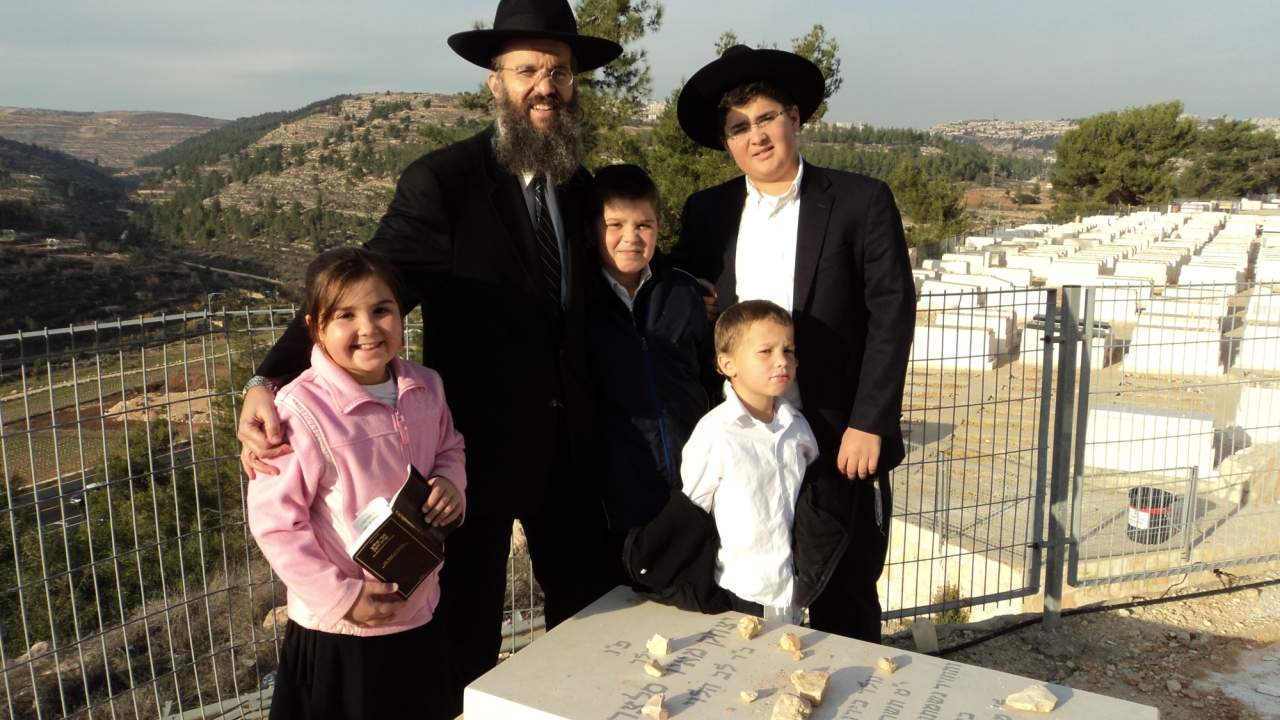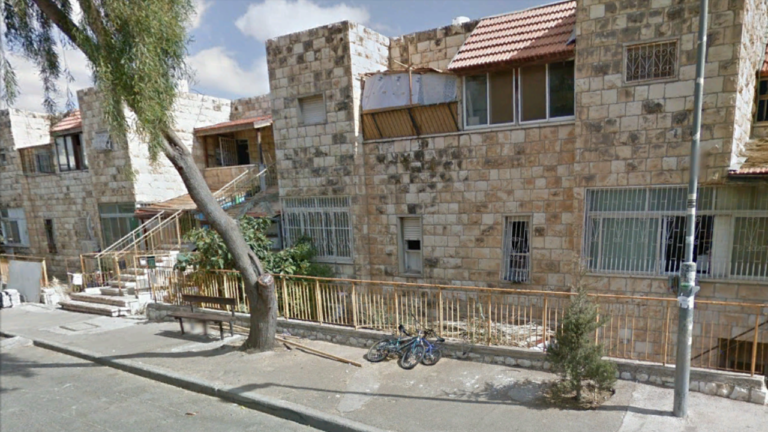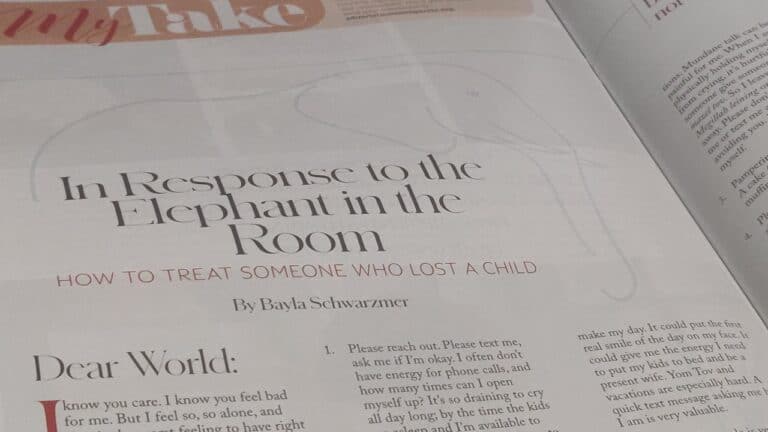First Yahrzeit of Yitzchak Meir Seltzer
On Shabbos, I commemorated the first anniversary of the death of my son Yitzchak Meir ben Lev Halevi.
On Friday night I went to shul early – I had already davened mincha at 12:30pm, but wanted to be there when the 2nd mincha started (at 20 minutes before sunset) so that I could talk to the gabbai about davening. Everything was quickly arranged, and I waited outside with my sons (who arrived a few minutes later). Mordechai and I went over the davening – I was very nervous about the melody to use. I have only lead the davening on Friday night a few times, and so I do not feel as comfortable with the melody as I do with the davening during the rest of the year. In the end, he came up to the bima and stood next to me as I started kabalos shabbos. He was helpful, and gave me a bit more confidence, though he was also not used to being a prompter for someone else. I did appreciate the “look” of the situation, having my eldest son stand next to me, with my other two sons sitting behind on the bench within the raised wooden area in the center of the shul. My wife was in the ladies’ section with Rochel Raizel – her step mother was also there (her father was in the men’s section).
I was very nervous at the beginning, and had trouble making my voice loud enough. But I got more comfortable as I progressed. I sang tzadik catamar yiphrach in a catchy tune (rather than a quick chant) – Mr. Dickman commented on it positively later in the evening. By the time I got to Magen Avos – which I had to do solo – I was comfortable, and was able to sing it slowly and loudly. I said the mourners’ Kaddish at the end, and that was it. Several people commented afterwards that I did a nice job (and had potential to do a better job). Many others offered the prayer “your son’s neshama (soul) should have an aliya (raising up).”
Dinner was very pleasant with my family and my in-laws. At dessert time, my brother-in-law Dovid Ellis came by unexpectedly with his wife and daughter Toby. It was very nice to have more family at the table, and I took the opportunity to tell over a story that gave me a great deal of strength when Yitzchak Meir was born 12 years ago (more on this story later). But my own children didn’t like the added guests, and left the table to play in another room. Eventually the guests left, I put Elisha and Rochel Raizel to bed, then escorted my father-in-law and his wife halfway to their home, then continued on a walk with my wife back to our home.
The family awoke very early in the morning for sunrise services starting at 05:45. I got their early enough to say Kaddish at the beginning of services. I also had to bring up the sefer torah, put my wife’s kugel on the hot plate, try to daven, and help settle Rochel Raizel and Elisha. Mordechai lead shacharis, and did a nice job at it. He also had the “Levi” aliyah, while I got maftir. I lead musaf, but let Rabbi Sait lead birkas hachodesh – which he sang in an almost operatic voice. Mordechai wasn’t at my side for musaf, but I did a respectable job in any case. I decided to sing the “shema yisrael” portion of the Kedusha in a way that I first heard from Rabbi Rubanowitz (though it is a somewhat popular tune). I had brought lots of food for the kiddush, including cake, brownies, cookies, whiskey, beer, and even some candy treats.
Normally, Simon Baum gives over a torah thought during the kiddush, but he wasn’t there. So I said a few words about my son, and again told over the story that I said the previous night:
There was a Jewish family in Europe a few hundred years ago. The husband and wife were pillars of the community, doing chesed, donating money, etc. Suddenly tragedy struck when a drunken gentile sailor abused, mutilated and murdered their 3 year old son. The community was in shock: “How could this happen to such a good family?!” But the husband and wife remained firm in their beliefs, saying that everything that G-d does is for the best.
A short time later tragedy struck again, and the husband became deathly ill. The entire town prayed for his recovery, and even the village Rabbi predicted that he would make a full recovery. But it was not to be, and the husband died. This broke the 35-year old window, and she was saddened and depressed for the next 3 years.
One Friday a son came to her and convinced her to stop her crying – it was already three years! She heeded his words, and decided that it was time to stop mourning. That Shabbos she happy, and she slept soundly for the first time in three years. While she slept, she dreamt she was in a beautiful garden and realized that it was Heaven. A man asked her if she wanted to meet her husband, and she said yes. She was brought to a beautiful palace. Inside thousands of people were listening to a torah lecture. At the end of the lecture, the teacher came over to her – it was her husband! She asked how could he know so much Torah to teach it over, since he was only a businessman; and why did he die so young. He explained that he was a Torah Scholar in a previous life, but never married. When he got to Heaven, he was prohibited from entry to the highest of places because he did not fulfill the first commandment: Be fruitful and multiply! So he was sent back down to get married and raise a family. Now that he completed that, he was able to go back to Heaven and assume his rightful place.
The wife then asked why did the son have to die. He told her that the son was a supremely righteous person in a previous life, but had been kidnapped by non-Jews at birth and fed milk from non-Jewish ladies. He was redeemed by Jews at the age of 3, and grew to be a great scholar. But he could not take his rightful place in Heaven because of those three years on non-Jewish milk. So he was sent back for that.
The wife next asked why the son had to die such a horrific death. The husband explained that there was a Heavenly decree on the village for a the villageers to be killed in a pogrom. The son volunteered to be a martyr himself instead of the town, and the Heavenly court agreed to the exchange. The son now sits near the Heavenly Throne, but the husband can visit him because he was the father. At the right time, the mother will also be able to visit him, too.
I explained how this story gave me strength to continue. I do not know why G-d made my son the way he was, and why He took him from this world at the age of 11. But the story reminds me that there ARE reasons for everything. This woman was fortunate enough to find the reason. Maybe one day I will also find out the reason. Maybe not. But because there IS a reason, I can be calmer, knowing that G-d is running the world with care.
We had four Golembo children for lunch – the parents were in South Africa for a simcha. Mordechai Eliyahu left at 1pm to lead davening at mincha. I didn’t join him as I wanted him to be able to lead davening, and I wanted to lead at the 4pm mincha.
At 3pm, Nechemiah’s entire class came over. They learned mishnayos in Yitzchak Meir’s memory, and Nechemiah gave out treats and then said a few words about his brother. They all came upstairs for mincha at 4pm, where I lead the davening. I was more confident at Mincha, as I had lead mincha davening on Shabbos many times.
As I was sponsoring the third meal for the men, the Rabbi’s wife decided to sponsor a third meal in her home for the ladies. My wife went there with Rochel Raizel, and later said that it was very nice.
The third meal at the shul was also very nice. We had a nice crowd, and I didn’t have to do any setup! I brought an extra potato kugel – in addition to all the other food that they bought – and some whiskey and treats. Nechemiah had a “private” table for his class; he later related to his mother on the phone how he felt like such a special person because he had this table just for him and his friends. I said over the story (see above) once again, and added another story of my own.
When Yitzchak Meir was about a month old he was sent to Shaarei Tzedek hospital for tests. I decided that I wanted him to remain in this hospital, because I felt he would get better care. I made a big “stink” with the hospital staff – looking back I was probably acting like a meshugenah American. The hospital staff eventually relented – as long as I came up with11,000 shekels per day! I could not handle that, so he went back to the other hospital. A month later he was released to our home, and while there he became critically sick and the ambulance picked him up to bring him to the hospital. They looked at their roster, and it said that on this particular day, babies were to go to Shaarei Tzedek hospital. So in the end, he got there without my having to lift a finger or spend a penny. I saw again that G-d runs the world. He decides which hospital my son should be in, and when it is time to change, He arranges it without my intervention.
Rav Zachariash spoke, and I lead the bentching at the end. Maariv was “regular” for me. I didn’t say kaddish or lead the davening. At the end of maariv, Aaron Sokol called me over to say how impressed he was with my kids. He had seen them grow over the past few years, and he didn’t realize that they were also facing a challenge of disabled brother. I had some nachas from that.
It wasn’t emotional an emotional Shabbos. I did not get all choked up when I said kaddish for my son. I was nervous about leading the davening at times, but I got through it all without major messups, and without an inflated ego.
Should I have reacted differently? When the brothers told Yaakov that Yosef was killed by the wild animal, Yaakov went into mourning. But as time went by, he was still never consoled, specifically because his son was still alive. I don’t remember the exact source or the exact words, but I remember hearing that as the loved one in is attended to in Heaven, the one back on Earth has some supernatural relief. Yaakov never received that because his son was alive. I must have received it, because after a year I am feeling calm. I went through difficulties with my son, and that chapter of my life is now closed. A new chapter has opened, with different difficulties, but I will try to overcome these difficulties just as I did with my son.
May the soul of Yitzchak Meir ben Lev Halevi have an aliyah in Heaven.



